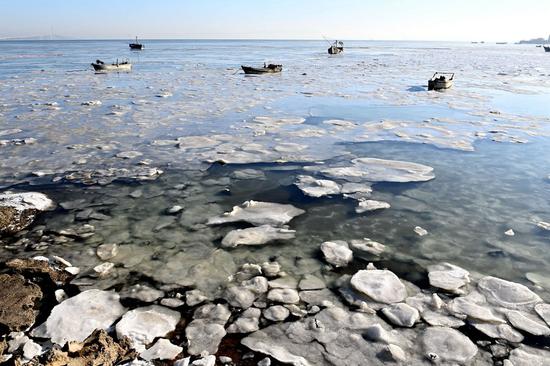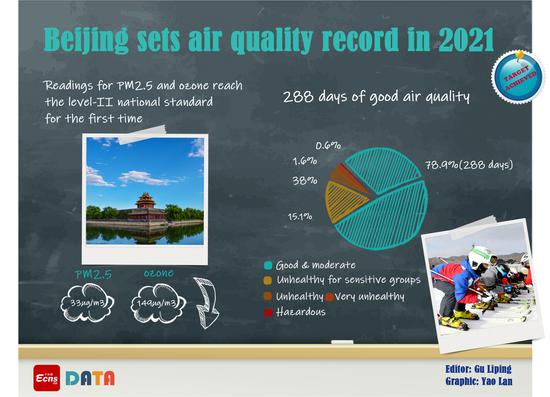
Photo taken on Dec. 27, 2021 shows ice floes in the coastal waters in Qingdao, east China's Shandong Province. (Photo by Yu Fangping/Xinhua)
The year 2021 was the hottest for the world's oceans in recorded human history, according to a new study led by an international team of scientists who track the data.
Published Tuesday in the journal Advances in Atmospheric Sciences, the study was conducted by 23 researchers from 14 institutes in China, the United States and Italy.
They found that the upper 2,000 meters in all oceans last year absorbed a greater amount of heat than the previous record set just the year before, equal to 145 times world electricity generation in 2020.
Since more than 90 percent of the excess heat due to global warming is absorbed by the oceans, ocean heat content is a primary indicator of global warming, said Kevin Trenberth, a scientist with the U.S. National Center for Atmospheric Research and co-author of the study.
Apart from absorbing heat, the oceans currently absorb 20 percent to 30 percent of human carbon dioxide emissions, leading to ocean acidification.
However, ocean warming reduced the efficiency of oceanic carbon uptake and left more carbon dioxide in the air, said Cheng Lijing, lead paper author and associate professor at the Institute of Atmospheric Physics (IAP) under the Chinese Academy of Sciences.
"Monitoring and understanding the heat and carbon coupling in the future are important to track climate change mitigation goals," Cheng said, calling for more attention to be paid to the oceans as many countries pledge to achieve carbon neutrality in the coming decades.
"As oceans warm, the water expands and sea level rises. Warmer oceans also supercharge weather systems, creating more powerful storms and hurricanes, as well as increasing precipitation and flood risk," Cheng added.
"The oceans are absorbing most of the heating from human carbon emissions," said paper author Michael Mann, professor with Pennsylvania State University. "Until we reach net zero emissions, that heating will continue, and we'll continue to break ocean heat content records, as we did this year. Better awareness and understanding of the oceans are a basis for the actions to combat climate change."
Researchers also shared data recorded by China's IAP and the U.S. National Oceanic and Atmospheric Administration in the study, which analyzed observations of ocean heat content and its impact dating from the 1950s.


















































 京公网安备 11010202009201号
京公网安备 11010202009201号